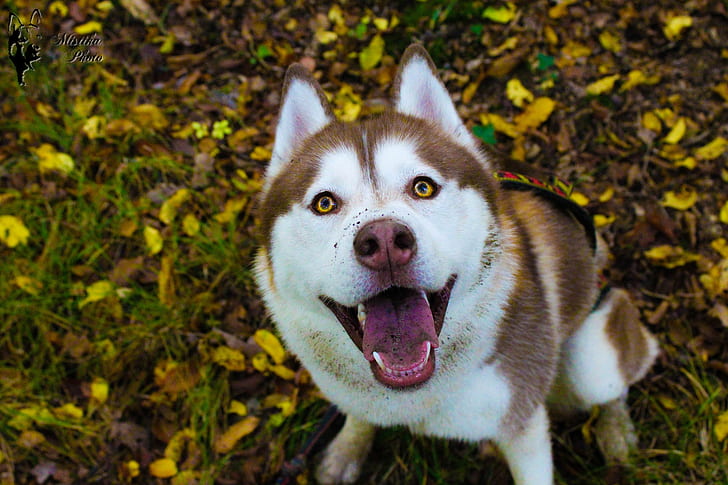Guide on how to select the best dog food for Huskies
Choosing the proper dog food is essential for your Husky’s wellbeing. Huskies have unique dietary needs due to their high energy levels and fast metabolism. Understanding these needs is essential in providing them with the best nutrition.
This blog will assist you with a Guide on how to select the best dog food for Huskies by considering their specific nutritional requirements, such as high-quality proteins and healthy fats, which are crucial for maintaining muscle mass and energy.
We will look at the various kinds of available dog food and how each can benefit your Husky. Whether your Husky is a puppy, an adult, or a senior dog, this guide will help you select the best food to support your health at every life stage.
We’ll also cover common feeding mistakes to avoid and give tips on ensuring your Husky stays healthy and active. By the end of this blog, you’ll have a comprehensive understanding of the Guide on how to select the best dog food for Huskies and ensure they thrive on a well-balanced diet.
Understanding the Nutritional Needs of Huskies

Because of their particular dietary needs, huskies originated as working dogs in cold climates. These canines are renowned for their power, stamina, and agility, requiring a diet that can fuel their active lifestyle.
Unlike some other breeds, Huskies have a fast metabolism, and their high energy levels influence their dietary needs. Understanding and meeting these certain dietary needs is essential to maintaining their health and growth.
Why Huskies Have Unique Nutritional Requirements
Originally, huskies were developed to pull sleds across distances in harsh, cold environments. This history has shaped their metabolism and energy needs. Huskies have high energy levels and a fast metabolism, so they burn calories quickly.
Despite their high energy demands, Huskies often require less food than other breeds of a similar size, making the quality of their diet even more important. A diet that doesn’t meet their nutritional needs can result in low energy levels, bad coat condition, and other health issues.
Key Nutrients to Look for in the Best Dog Food for Huskies
- Protein
Protein is the most important nutrient for Huskies because it builds and maintains muscle mass. Since Huskies are active dogs, they need a diet of premium protein to help with their muscles and overall body function. Seek dog food with meat as the first ingredient, such as chicken, beef, or fish.
These proteins supply the amino acids required by muscle development and repair, especially for active Huskies. A diet lacking sufficient protein can result in muscle loss, weakness, and decreased overall energy levels.
- Fats
Healthy fats are essential for maintaining your Husky’s energy levels and coat health. A concentrated energy supply that fats offer is crucial for a breed that burns calories as quickly as Huskies. Additionally, fats help to keep a Husky’s coat shiny and skin healthy.
Look for dog food that includes supplies of omega-3 and omega-6 fatty acids, including flaxseed or fish oil. These fatty acids also support brain health, reduce inflammation, and promote joint health, which is particularly beneficial for active dogs.
- Carbohydrates
Carbohydrates provide the energy Huskies need to stay active but should be included in moderation. Huskies don’t require as many carbs as other breeds because they are prone to gaining weight if overfed. It’s important to choose dog food that includes complex carbohydrates like sweet potatoes, peas, or whole grains.
These complex carbohydrates offer a consistent energy release without causing blood sugar spikes. Avoid dog foods like corn and wheat that are heavy in simple carbs, which can cause weight gain and other health issues.
- Vitamins and Minerals
Vitamins and minerals are vital for your Husky’s overall health. These nutrients are critical in various bodily functions, including bone health, immune system support, and proper digestion. For example, calcium and phosphorus are essential for strong bones and teeth, which is important for active Huskies, which puts a lot of stress on their joints.
Vitamins like A, C, and E are powerful antioxidants that help protect the body from free radicals and support the immune system. Additionally, B vitamins are crucial for energy production and maintaining healthy skin and coat. Ensure your dog food provides a balanced mix of these essential nutrients to keep your Husky in optimal wellness.
Recognizing and meeting these dietary requirements will help you ensure your Husky receives the best possible food to complement their energetic lifestyle and general wellbeing. Proper nutrition will keep your Husky healthy and enhance their quality of life, allowing them to thrive for years.
Understanding how to select the finest dog food for Huskies based on these key nutrients is essential to giving your dog the care they deserves.
Things to Take Into Account When Selecting the Best Dog Food for Huskies
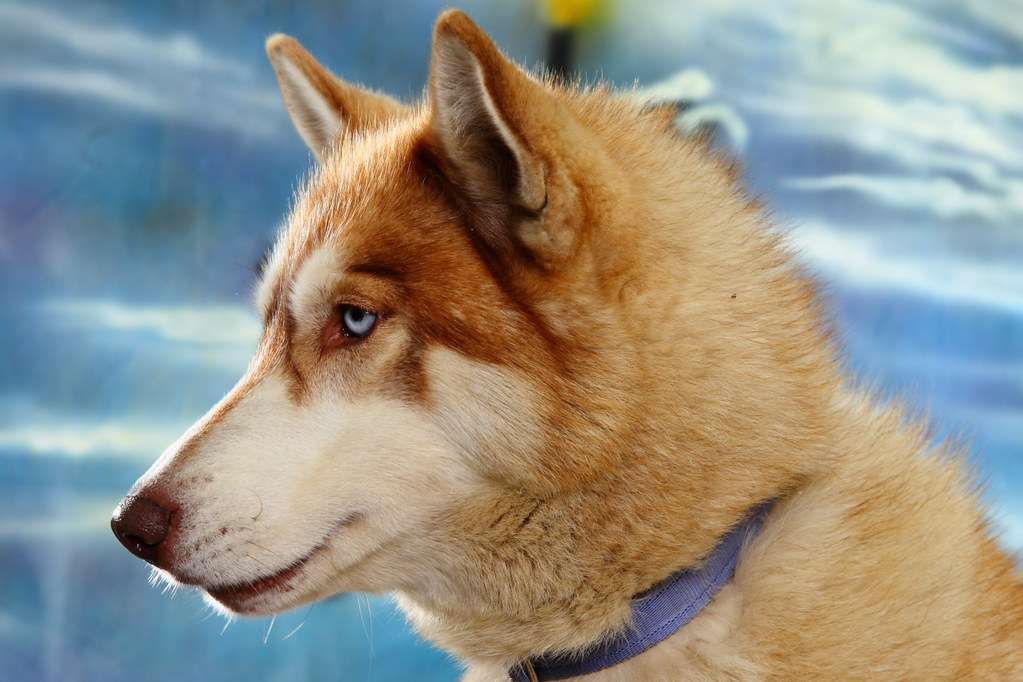
Several factors affect your Husky’s health and well-being when selecting the right dog food. The best dog food for Huskies depends on their age, any allergies they may have, their digestive health, and their activity level. Tailoring their diet to these needs can ensure your Husky stays healthy, active, and happy.
The Best Dog Food to Give Your Huskies Based on Age
Puppies:
Growing Huskies have unique nutritional needs that are different from adult dogs. Puppies require a diet abundant in calories and protein to assist their quick development. Look for puppy food that includes DHA, an omega-3 fatty acid that helps with vision and brain development.
Additionally, calcium and phosphorus are crucial for developing strong bones and teeth. Feeding your Husky puppy the right food during their early months sets the foundation for a healthy life.
Adults:
As Huskies mature into adulthood, their dietary needs shift to focus on maintaining energy levels and muscle mass. High-quality protein remains important, but you should also ensure the food provides balanced fat levels to sustain energy.
Adult Huskies are very active, so their food should be rich in nutrients that support joint health, such as glucosamine and chondroitin, which help prevent joint issues as they age.
Seniors:
Senior Huskies have different nutritional requirements than their younger counterparts. As they age, their metabolism slows down, and they become less active. Senior Huskies benefit from a diet that supports joint health and has reduced calorie intake to prevent weight gain.
To keep their joints healthy, look for senior dog food that includes glucosamine, chondroitin, and omega-3 fatty acids. Additionally, senior dog food should have a lower fat content to prevent obesity while providing enough protein to maintain muscle mass.
The Best Dog Food to Give Your Huskies with Allergies
Huskies are prone to certain food allergies, which can cause skin irritation, digestive issues, and other health problems. Common allergens for Huskies include grains, chicken, and dairy products. The finest dog food to choose for huskies with allergies, look for hypoallergenic food free from common allergens. Limited-ingredient diets can also be beneficial, reducing the likelihood of triggering an allergic reaction.
If your Husky has a known allergy, select a dog food that avoids that specific ingredient and instead includes novel protein sources like venison or duck, which are less prone to trigger allergies.
How to select the Best Dog Food for Huskies with Sensitive Stomachs
Huskies with sensitive stomachs need dog food that is easy to digest. Easily digestible ingredients like chicken, rice, and sweet potatoes can help prevent digestive upset. Look for dog food that contains probiotics, which encourage a balanced stomach and promote good digestion flora.
Avoid dog foods with artificial additives, as these can exacerbate stomach sensitivity. Grain-free options can also benefit Huskies with delicate stomachs, as they frequently digest more easily.
How to select the Best Dog Food for Huskies for Active Dogs
Active Huskies have increased caloric needs due to their high energy levels. If your Husky is highly active, engaging in activities like running, hiking, or pulling sleds, they will require a diet that provides more calories and nutrients to sustain their energy.
Look for food specifically formulated for active dogs, which usually includes higher levels of protein and fat to fuel their endurance. Omega-3 fatty acid-rich foods can also be beneficial, lessen swelling, and promote joint health, which is crucial for active Huskies.
Feeding your active Husky the right diet will ensure they have the energy to perform at their best and recover quickly after physical activity.
You can make wise selections if you consider these things when choosing the best dog food for Huskies, which meets their specific needs and keeps them healthy and vibrant at every stage of life.
Different Types of Dog Food for Huskies
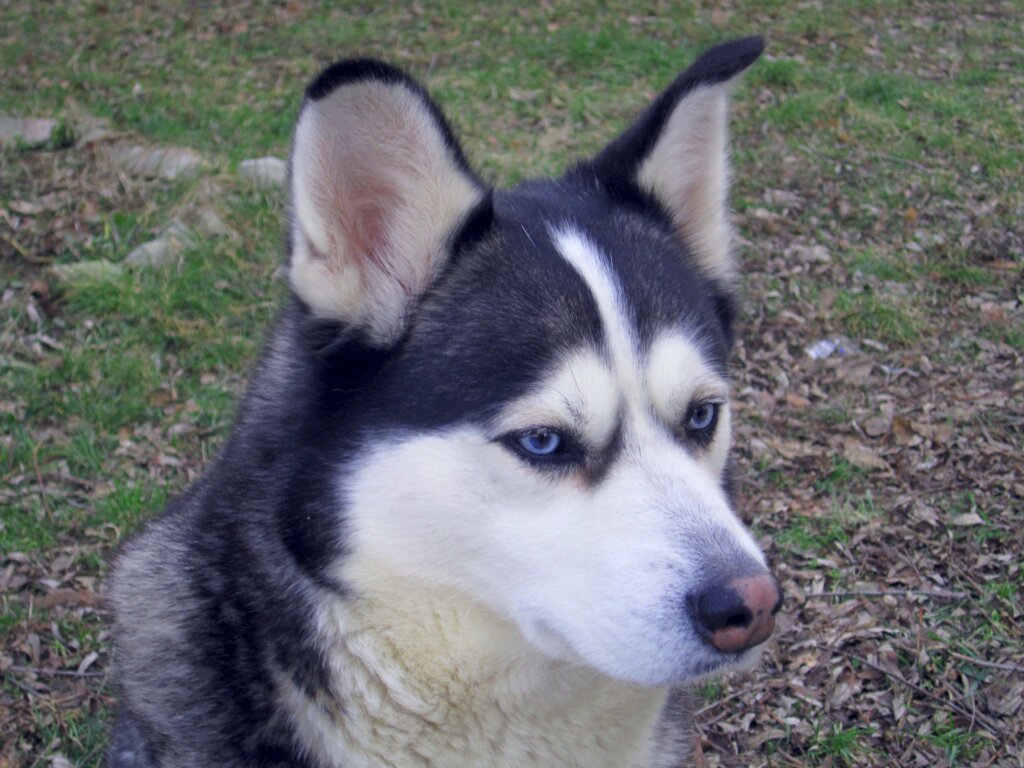
The best dog food for huskies should be selected. There are several types to consider. Each has pros and cons, and understanding these can help you make the best decision for your Husky.
Dry Dog Food: Is It the Best Dog Food for Huskies?
Dry dog food, known as kibble, is one of dog owners’ most well-liked options. It’s convenient, easy to store, and usually more affordable than other options.
- Pros:
- Convenience: Dry dog food is a sensible choice for time-pressed pet owners because it is simple to feed and store.
- Dental Health: Kibble’s crunchy texture can help clean your Husky’s teeth by reducing plaque and tartar buildup.
- Cost-Effective: Kibble is often less expensive than wet or raw dog food, making it a budget-friendly choice.
- Long Shelf Life: Dry dog food has a longer shelf life, which lowers the possibility of spoiling.
- Cons:
- Lower Moisture Content: Dry dog food contains less moisture, which can be an issue for Huskies who don’t drink enough water.
- Potential for Lower Palatability: Some Huskies might find dry food less appealing, especially if they are picky eaters.
- Quality Variability: The quality of dry dog food can vary significantly, so choosing a brand that uses high-quality ingredients is important.
Wet Dog Food: How to Pick the Finest Option for Your Husky
Wet dog food is another popular option. It is known for its high moisture content and strong flavor, which can be more appealing to some Huskies.
- Pros:
- Higher Moisture Content: Wet dog food contains more moisture, which can help you stay Husky hydrated, especially if they don’t drink much water.
- Palatability: Wet food tends to be more flavorful and aromatic, making it a great option for picky eaters.
- Easier to Digest: Wet food’s softer texture can be easier on your Husky’s digestive system, particularly for canines that are elderly or have dental problems.
- Cons:
- Cost: In general, the cost of wet dog food is higher than that of dry kibble.
- Shorter Shelf Life: Once opened, wet food must be refrigerated and used quickly, which can be less convenient.
- Dental Health Concerns: Wet food doesn’t provide the same dental benefits as dry kibble, so you may need to be more vigilant about your Husky’s dental hygiene.
Raw Diet: How to Choose the Best Raw Dog Food for Huskies
A raw diet comprises raw meats, bones, and vegetables, aiming to mimic what a dog might eat in the wild.
- Pros:
- Natural Ingredients: A raw diet is often considered more natural and closer to a Husky’s ancestral diet.
- High-Quality Protein: Raw diets typically include high-quality, unprocessed meats that can support muscle maintenance and overall health.
- Improved Coat and Skin Health: Many owners report shinier coats and healthier skin in dogs on a raw diet.
- Cons:
- Risk of Bacterial Contamination: Handling and preparing The risk of bacterial infection can rise while eating raw food, harming both your Husky and your family.
- Nutritional Imbalance: Ensuring that a raw diet provides all the necessary nutrients can be challenging, leading to potential deficiencies.
- Cost and Preparation Time: Preparing a raw diet can be more expensive and time-consuming than preparing commercial dog foods.
Grain-Free vs. Grain-Inclusive: How to Choose the Best Dog Food for Huskies
The debate between grain-free and grain-inclusive dog food is ongoing, and it’s important to understand the variations when selecting the finest dog food for your Husky.
- Grain-Free:
- Pros:
- Ideal for Allergies: Grain-free dog food is often recommended for Huskies with grain allergies or sensitivities.
- Higher Protein Content: Grain-free options typically contain more protein, which can benefit active Huskies.
- Pros:
-
- Cons:
- Potential Health Risks: Certain research has indicated a link between cardiac problems and grain-free diets in dogs, although this is still being researched.
- Higher Cost: Grain-free dog foods are generally more expensive than grain-inclusive options.
- Cons:
- Grain-Inclusive:
- Pros:
- Balanced Nutrition: Grain-inclusive dog foods often provide a healthy diet with the ideal protein, fats, and carbohydrate ratio.
- Cost-Effective: These diets are usually less expensive and more widely available.
- Cons:
- Potential Allergies: A grain-inclusive diet might be unsuitable if your Husky has a grain allergy or sensitivity.
- Pros:
Every kind of dog food has benefits and drawbacks. When deciding on the best dog food for your Husky, consider your dog’s needs, dietary restrictions, and lifestyle. Whether you choose dry, wet, raw, or grain-free, the most important thing is ensuring your Husky gets a balanced, nutritious diet that supports their health and energy levels.
Top Ingredients to Look for in the Best Dog Food for Huskies
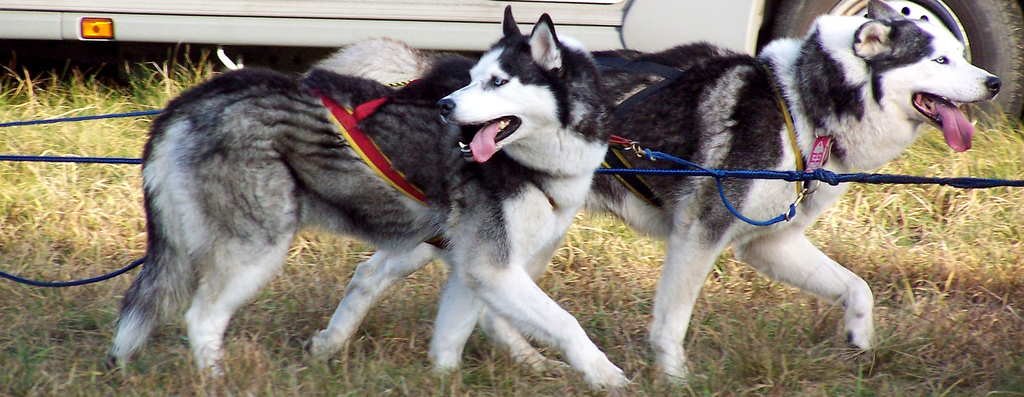
Choosing the right ingredients in your Husky’s diet is crucial to their health and wellbeing. Selecting the finest dog food for Huskies means understanding what to look for on the ingredient label. The quality of the ingredients can significantly affect your Husky’s energy levels, coat condition, and overall health.
How to Identify High-Quality Protein Sources
High-quality protein is the cornerstone of a healthy diet for Huskies. When selecting dog food, look for real meat such as fish, poultry, and cattle as the main ingredient. Plenty of necessary amino acids in these proteins are vital for maintaining your Husky’s muscle mass and energy levels.
Avoid dog foods that list meat by-products or plant-based proteins like soy as the main protein source, as they do not provide the same nutritional benefits. Real meat should be listed as the first ingredient on the label, ensuring that your Husky gets the best quality protein to support their active lifestyle.
Healthy Fats: Essential for a Husky’s Coat and Energy Levels
Healthy fats are crucial for maintaining your Husky’s energy levels and a healthy, lustrous coat. Specifically, the fatty acids omega-3 and omega-6 are crucial as they help reduce inflammation, support brain health, and keep the skin and coat in top condition.
Ingredients like fish oil, flaxseed, and chicken fat are excellent sources of these fatty acids. Including these fats in your Husky’s diet will give them a concentrated energy source and enhance their coat’s luster and overall skin health.
Carbohydrates: Finding the Right Balance for Your Husky
Carbohydrates are necessary for providing energy to your Husky, but finding the right balance is important. Whole grains, sweet potatoes, and peas are excellent complex carbs that gradually release energy, preserving your Husky fueled throughout the day without causing blood sugar spikes.
These ingredients are also abundant in fiber, which promotes good weight maintenance and aids with digestion. Steer clear of dog foods that include a lot of simple carbs, such as maize or wheat, as these can result in health problems such as weight gain.
Vitamins and Minerals: Supporting Overall Health
Minerals and vitamins are crucial for sustaining your Husky’s overall health. Components offering abundant vitamins and minerals include fruits and vegetables like carrots, spinach, and blueberries. These ingredients offer essential vitamins like strong antioxidants, including vitamins A, C, and E, that protect the body from free radicals.
The minerals, phosphorus, and calcium essential for healthy bones should also be in your Husky’s diet. Ensuring your dog food includes these vital nutrients will help maintain your Husky’s health and vitality.
By focusing on these top ingredients, you can ensure that your Husky receives the best possible nutrition. Choosing the best dog food for Huskies means selecting food with high-quality protein, healthy fats, balanced carbs, and necessary minerals and vitamins, all of which contribute to your dog’s healthy, active, and happy life.
Ingredients to Avoid in Dog Food for Huskies
When selecting food for your Husky, it’s just as important to know which ingredients to avoid as it is to know what to include. Choosing the best dog food for Huskies involves removing low-quality and harmful ingredients that can negatively impact your dog’s health. By understanding what to look out for, you can make better choices for your Husky’s diet.
Common Harmful Ingredients in Dog Food
Fillers: Corn, Soy, and Wheat
Fillers are low-cost ingredients dog food manufacturers use to bulk up the product. Corn, soy, and wheat are common fillers that offer little to no nutritional value for Huskies. These ingredients can also be difficult for Huskies to digest and may contribute to food sensitivities or allergies.
Fillers often replace higher-quality ingredients that provide essential nutrients, so your Husky might not get the nutrition they need.
Artificial Additives: Colors, Flavors, and Preservatives
Artificial additives Dog food frequently contains additives like flavors, colors, and preservatives to improve its look, taste, and shelf life.
However, these additives can be harmful to your Husky’s health. Artificial flavorings and colors may trigger allergic responses and digestive issues, while preservatives like Potential health risks have been associated with BHA, BHT, and ethoxyquin risks, including cancer. Avoiding dog meals containing these additives on the ingredient label is crucial, as they do not contribute to your Husky’s wellbeing.
How to select the Best Dog Food for Huskies by Avoiding Low-Quality Ingredients
Tips on Reading Ingredient Labels and Avoiding Harmful Additives
When choosing the best dog food for your Husky, it’s crucial to carefully read the ingredient label. Start by checking the first few ingredients listed, as these comprise most of the food’s content. Avoid dog foods where fillers like corn, soy, or wheat are listed as one of the main ingredients. Instead, choose dog foods that list real meat or fish as the primary ingredient.
Look out for artificial additives in the ingredient list. Words like “artificial color,” “artificial flavor,” or chemical names like “BHA” and “BHT” are red flags that dog food contains potentially harmful substances. Select dog food products that are naturally preserved, such as vitamin E (often listed as “mixed tocopherols”) or vitamin C instead.
By being vigilant about your Husky’s food ingredients, you can avoid low-quality and harmful additives, ensuring your dog receives a diet supporting their health and vitality. Choosing the best dog food for Huskies means selecting products free from fillers, artificial additives, and low-quality ingredients that could compromise your dog’s wellbeing.
Common Feeding Mistakes and How to Avoid Them
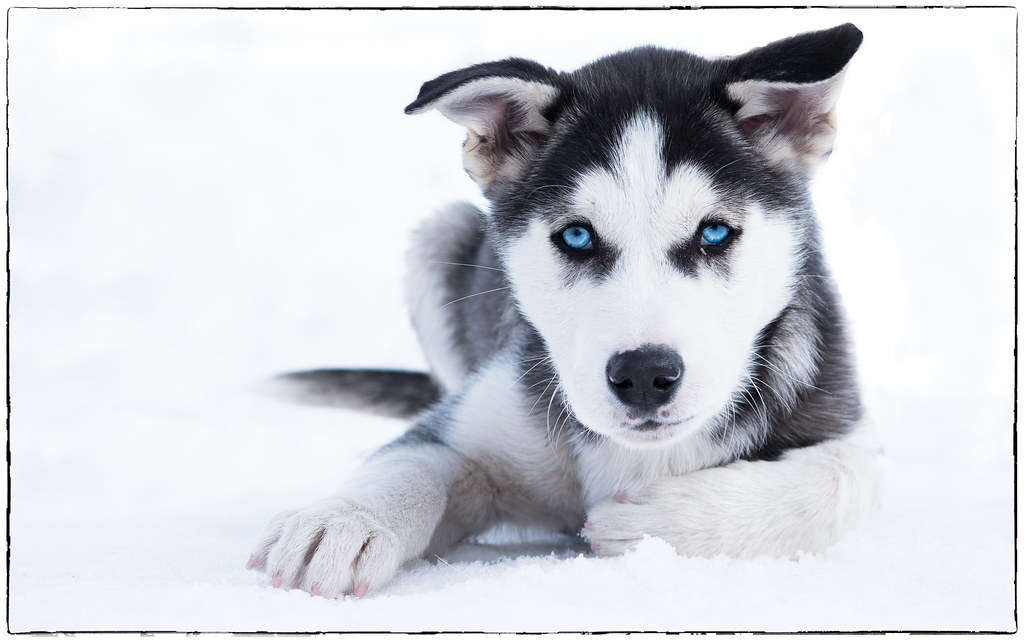
Feeding your Husky the right way is essential to their health and wellbeing. Choosing the best dog food for Huskies and how much to feed them are crucial aspects of their care. Avoiding common feeding mistakes can help keep your Husky healthy, energetic, and happy.
Overfeeding: How to Choose the Best Dog Food for Huskies and Feed the Right Amount
Overfeeding is one of the most common mistakes that Husky owners make. Huskies have a fast metabolism but don’t require as much food as other breeds of similar size. Overfeeding can lead to obesity; It raises the possibility of joint problems, heart disease, and other health issues.
To avoid overfeeding, it’s important to abide by the feeding recommendations made by the dog food manufacturer, adjusting based on your Husky’s activity level and age. Measure your Husky’s food carefully and avoid giving excess candy or leftovers from dinner, which can add extra calories and disrupt their balanced diet.
Choosing high-quality, nutrient-dense dog food will help ensure your Husky gets the right amount without overloading calories.
Underfeeding: Ensuring Your Husky Gets Enough Nutrition
Underfeeding is another mistake that can occur, especially if you’re trying to control your Husky’s weight. Ensuring your Husky gets enough nutrition is vital for preserving their health and energy levels. If a Husky doesn’t receive enough food, they may become underweight, leading to muscle loss, weakness, and a weakened immune system.
To avoid underfeeding, provide enough food based on your Husky’s size, age, and activity level. Pay attention to your Husky’s body condition and weight, and consult your veterinarian if you’re unsure about the right amount to feed. A nutritious and well-balanced food tailored to your Husky’s needs is key to keeping them strong and healthy.
Ignoring the Husky’s Unique Needs: How to Choose the Best Dog Food for Huskies by Considering Individual Differences
Ignoring your Husky’s unique needs can lead to feeding mistakes that affect their health. Choosing the best dog food for Huskies involves considering individual differences like age, activity level, and specific health concerns. For example, a highly active Husky will require more nutrition and calories than a less active person, while a senior Husky might require a diet that supports joint health and has fewer calories.
It’s also important to consider any allergies or food sensitivities your Husky may have, choosing dog food that avoids those triggers. Tailoring your Husky’s diet to their needs will help ensure they receive the best nutrition and avoid common feeding mistakes.
By being aware of these common feeding mistakes and how to avoid them, you can make better choices for your Husky’s diet, keeping them healthy and thriving. Understanding how to select the finest dog food for Huskies and feeding them the right amount based on their needs is crucial for their long-term wellbeing.
Conclusion
The proper dog food selection for your Husky is key to their health and wellbeing. The best dog food for Huskies involves understanding their unique needs, selecting high-quality ingredients, and avoiding common feeding mistakes.
Final Tips for Maintaining Your Husky’s Health Through Proper Nutrition
Serve a well-balanced diet with healthy fats, high-quality protein, and the right mix of carbohydrates, vitamins, and minerals. Regularly check your Husky’s weight and condition to ensure their diet meets their needs.
Stress the Value of Frequent Veterinary Exams and Monitoring Your Husky’s Health
Regular vet visits are crucial for adjusting your Husky’s diet and catching any health issues early. Monitoring their health and nutrition will help ensure they stay happy and healthy.
These tips on selecting the best dog food for Huskies can support your dog’s long-term health and wellbeing.
Frequently Asked Questions: Guide on how to select the best dog food for Huskies
What Is the Best Dog Food for Huskies with Allergies?
The best dog food for Huskies with allergies is hypoallergenic or limited ingredient diets with novel protein sources, like duck or venison.
How do you select the Best Dog Food for Huskies on a Budget?
Look for high-quality, affordable brands that balance essential nutrients well, and avoid foods with fillers and artificial additives.
How Often Should I Feed My Husky?
Feed your Husky twice daily, once in the morning and once in the evening, to maintain energy levels and avoid digestive issues.
Can I Feed My Husky Human Food?
You can occasionally feed your Husky-safe human foods like plain cooked meat or vegetables, but Steer clear of harmful or high-fat foods.
YOU MAY ALSO LIKE:
Corgi Feeding Guide
What to Feed a Diabetic Dog
Tips for Dogs with Sensitive Stomachs
Boxers Allergies and Skin Allergy Guide
Is Iams a Good Dog Food
Can Adult Dogs Eat Puppy Food
What is Chicken Meal in Dog Food
What is The Best Meat for Dog Food
Is Blue Buffalo Good Dog Food
Complete Guide to How Much Fresh Food to Feed a Dog
How Much Food for 60 lb Dog
How much Cesar Dog Food to Feed
How good is blue buffalo dog food
How Expensive is Farmer’s Dog Food
How Long is Canned Dog Food Good for After Opened
How Long Does a Bag of Dog Food Last
How Much Does Sundays Dog Food Cost
How to choose the best dog food for Huskies
How Much Does Cup of Dog Food Weigh
How to Treat Dog Food Poisoning at Home
How Much is Sunday’s Dog Food?
How Much is Ollie Dog Food in a Month?
How to Choose Dog Food
How Much Pumpkin to Add to Dog Food
How Much Does Farmers Dog Food Cost?
How Long Can Wet Dog Food Sit Out?
How to Soften Dog Food
How to Keep Dogs Out of Cat Food
How to Give Dog Pills Without Food
How to Get my Dog to Eat Dry Food
How to Keep Ants Out of Dog Food
How Much Does Dog Food Cost
How Long to Soak Dog Food
How Much Homemade Dog Food to Feed
How Much Wet Food to Feed a Dog
How to Transition Dog Food
How to Stop Food Aggression in Dogs Towards Other Dogs
How many cups of food should I feed my dog?
How to Stop Food Aggression in Dogs
How Many Cups in a Pound of Dog Food
How Long Does it Take a Dog to Digest Food
Why is My Dog Always Hungry
How Much Protein is in Dog Food?
How to Make Dog Food
how long to feed dog puppy food
What is The Cost to Make Homemade Dog Food?
How to Make Homemade Raw Dog Food
How to Make Homemade Dry Dog Food
How to Prepare Dog Food at Home for Senior Dogs
How to Train a Dog That is Not Food-Motivated

